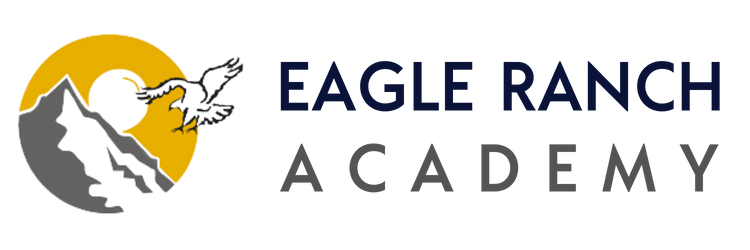When your kid is out of control, the last thing you want to think is give them choices.
Sometimes when life seems out of control, our reaction as parents is to restrict and force our children into doing what’s right.
Sometimes we think by restricting them that we are encouraging them to get on the right path.
And sometimes, our kids are so out of control, that outside help is needed to protect them from themselves and others (cough, that’s why we are here).
At Eagle Ranch we encourage a choice-based approach- helping struggling teens develop life skills, not temporary fixes.
At Eagle Ranch Academy, teens get the opportunity to learn from their consequences.
A couple weeks ago we had a situation where two of our teen boys stole some food from our kitchen after hours. Not only is stealing wrong, but it took away from the other kids. It not only affected them but everyone else lost out on the food they stole.
Our approach was to ask them what they felt was an appropriate discipline.
One suggested he write a letter to our chef, apologizing, and offer to deep clean the kitchen.
The other thought he needed to apologize to the whole group of kids and go without dessert for a week.
These kids had the opportunity to discover the effects of their choices, take accountability for their actions, and change. They learned from their wrongdoing.
When kids have the opportunity to see what was wrong, plus how it affected others, and decide the appropriate discipline for their action, most of the time we end up having to encourage our kids not to be so harsh on themselves- in other words,
Struggling teens are capable of understanding their actions and are able to take accountability for them.
If a struggling teen learns life skills, they will be able to think on their own when they reach adulthood and make choices more congruent with their values, rather than simply acting out or reacting when they feel out of control.
Choice-based therapy helps teens feel more in control of their lives and to build their life skills to become responsible, cognitive adults- able to make choices and be in control of their lives.
While point-based and reward systems may work for a time, it is not consistent with real life.
In real life we are not rewarded through every good deed and we sure aren’t penalized all the time for wrong-doing either, unless we are caught.
It takes self-evaluation and regulation to be a healthy, happy adult.
And that’s what our life skills and values program is all about.
So what sort of life skills are we talking about?
The first that we teach is
Accountability: I will be accountable for the things that happen in my life.
The example I gave was a perfect illustration of the principle.
Another example of learning accountability is learning to recognize what their parents do for them– when they have to be accountable for their life, they learn very quickly how much work is involved in sustaining their day-to-day life. Things like laundry, chores, cooking, finances. It helps kids take a more healthful approach to life instead of wasting it.
The next life skill we teach is
Honesty: I will be honest in all my relationships.
Relationships are the zest of life. In everything- school, vocational pursuits, career, family life, friends, a large amount if it is based off of relationships.
And honesty is key.
Honesty builds trust, which is foundational to any relationship. It also breeds vulnerability, power, more effective communication and efficiency.
Honesty greases the wheels of life and helps everything to go round and issues to get resolved quickly.
Dishonesty is like a cancer that spreads and cankers until it destroys your inner happiness, confidence as well as all areas of your life.
Our teens have the opportunity to learn about honesty- being honest about their current situation and state of well-being, honesty about their relationship with their parents. Honest about the choices they are making and how they feel.
Honesty is central to the success of any teen’s recovery and is an essential life skill.
We will share more life skills in our next post.

